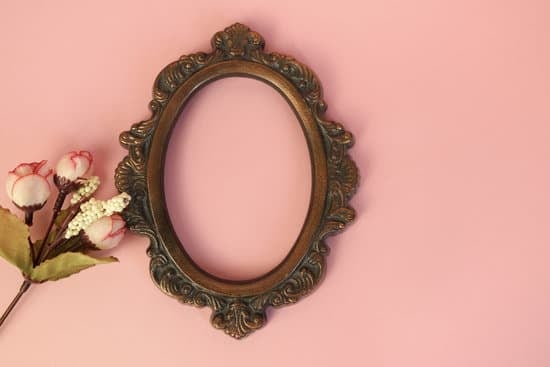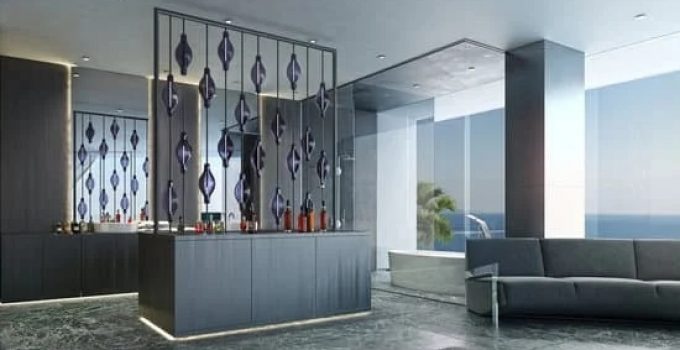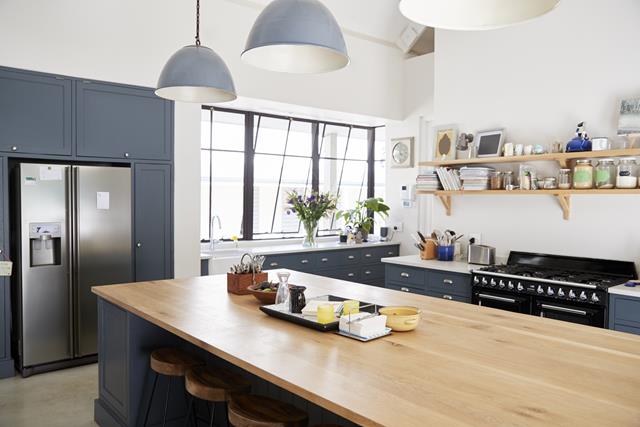Are you considering hiring a home decorator to transform your living space but unsure about the cost? Look no further. This comprehensive guide will provide you with all the information you need to understand how much a home decorator charges. From the various services they offer to the factors influencing their fees, we will delve into every aspect of pricing structures and costs involved in home decorating projects.
Hiring a home decorator can help you achieve the desired aesthetic for your home, whether it’s a cozy cottage, modern minimalist, or a chic urban vibe. But before diving into your dream renovation project, it’s essential to have an understanding of the expenses involved. It’s natural to wonder how much does a home decorator charge and what factors can influence these costs.
In this guide, we will explore different pricing models such as hourly rates versus flat fees and provide insights into the price range for specific decorating tasks. We will also delve into geographical considerations and hidden expenses that may arise during your project. Additionally, we’ll give you valuable tips on budgeting and negotiating pricing so that you can stay within your financial means.
By the end of this article, you’ll be equipped with all the knowledge necessary to make informed decisions when hiring a home decorator. Whether it’s assessing value for money or addressing common concerns about pricing, we’ve got you covered. So let’s dive in and find the perfect home decorator who can turn your vision into reality without breaking the bank.
The Role of a Home Decorator
Home decorators play a vital role in transforming a house into a home, creating spaces that are not only visually appealing but also reflect the homeowner’s personal style and preferences. Understanding the services provided by home decorators is essential when considering their charges.
- Initial Consultation: The process typically begins with an initial consultation where the home decorator meets with the client to discuss their vision, needs, and budget for the project. During this phase, the decorator will gather information about the client’s style preferences, lifestyle requirements, and any specific goals they have for the space.
- Space Planning and Design: Home decorators excel in creating functional and aesthetically pleasing layouts for every room of a house. They carefully consider factors such as furniture placement, traffic flow, lighting, and storage solutions to maximize space utilization. They create detailed floor plans, renderings, and mood boards to help clients visualize their design concepts.
- Material and Furniture Selection: A key responsibility of a home decorator is assisting clients in selecting materials like paint colors, wallpapers, flooring options, fabrics for upholstery or curtains, lighting fixtures, hardware, and furniture pieces that align with their desired aesthetic. They take into account not only visual appeal but also factors like durability, maintenance requirements, affordability, and sustainability.
- Coordination of Contractors: In some cases where extensive renovations or remodeling are required as part of the project, home decorators may coordinate with various contractors such as painters, carpenters, electricians, or plumbers to ensure seamless execution of the design plan. They liaise with these professionals to oversee quality control and timely completion of work.
- Procurement of Decorative Accessories: Home decorators have resources and contacts within the industry that enable them to source unique decorative accessories such as artwork, rugs, cushions or pillows that add personality to a space. They can guide clients in making informed choices based on their budget while ensuring cohesiveness with the overall design concept.
- Styling and Final Touches: Once the major design elements are in place, decorators focus on adding the finishing touches to complete the space. They pay attention to details like arranging furniture, styling shelves, selecting window treatments, and placing decorative accents to enhance the overall aesthetic. This final stage is crucial in creating a cohesive and polished look.
By understanding the wide range of services provided by home decorators, clients can gain clarity on what to expect from them and clarify any specific requirements they may have for their project. Whether it’s a complete home makeover or smaller design updates, a professional home decorator can help bring your vision to life with their expertise and creative solutions.
Factors Influencing the Cost
When hiring a home decorator, there are several factors that can influence the cost of their services. By understanding these variables, homeowners can better estimate and budget for their desired home decorating project.
One major factor that determines the charges of a home decorator is the scope and complexity of the project. Larger or more involved projects, such as full house renovations or designing multiple rooms, will typically require more time and resources from the decorator. As a result, they may charge higher fees to compensate for the increased workload.
Another important consideration is the level of experience and expertise of the home decorator. Decorators with more years in the industry or specialized skills may have higher rates compared to those who are just starting out or provide more general services. This is because experienced decorators often bring a wealth of knowledge and creativity to their work, which can result in a higher quality end result.
The location and size of your home can also influence the cost of hiring a decorator. In metropolitan areas or cities with a higher cost of living, decorators tend to charge higher rates due to increased demand and operating expenses. Additionally, larger homes with more rooms or square footage may incur higher charges as there is typically more time and effort required to transform these spaces.
| Project Scope | Average Hourly Rate (USD) |
|---|---|
| Single Room Makeover | $75 – $150 |
| Full House Redesign | $100 – $200 |
| Metropolitan Areas | $125 – $250 |
| Rural/Suburban Areas | $75 – $150 |
It’s important to note that these rates are general estimates and can vary depending on individual decorators and specific project details. Homeowners should always reach out to multiple decorators and request quotes tailored to their unique needs to get a more accurate understanding of pricing.
By considering factors such as project scope, decorator experience, location, and size of the home, homeowners can have a better grasp of the variables that determine the charges of a home decorator. This knowledge will help them make informed decisions when budgeting for their home decorating projects and ensure they find a decorator who aligns with their vision and financial capabilities.
Hourly vs. Flat Fee
Hourly versus flat fee pricing is a decision that homeowners often have to make when hiring a home decorator. Each pricing structure has its own pros and cons, and understanding them can help you determine which option is best for your budget and project needs.
Hourly Pricing
One common pricing structure used by home decorators is charging an hourly rate for their services. This means that the decorator charges a specific amount of money for each hour they spend working on your project.
Pros:
- Transparency: Hourly pricing allows for greater transparency as you can see exactly how much time the decorator spends on your project and how that translates into costs.
- Flexibility: With hourly pricing, you have more flexibility to make changes or adjustments to the design plans throughout the project without incurring additional fees.
- Cost savings for smaller projects: If you have a small project that requires only a few hours of work, hiring a decorator on an hourly basis may be more cost-effective than paying a flat fee.
Cons:
- Lack of predictability: Since the final cost will depend on how long it takes the decorator to complete the project, there might be uncertainty around the total expense.
- Potential for higher costs: If your project ends up taking longer than anticipated due to unforeseen challenges or delays, the hourly charges can accumulate quickly, leading to higher overall costs.
- Less incentive for efficiency: Some critics argue that hourly pricing can potentially discourage decorators from working efficiently as it means they get paid more by spending more time on a project.
Flat Fee Pricing
Alternatively, some decorators opt for a flat fee pricing structure. This means that they charge a fixed amount for the entire project, regardless of how many hours it takes them to complete it.
Pros:
- Predictable costs: Flat fee pricing provides certainty about the total cost of the project upfront, allowing homeowners to budget accordingly.
- Incentive for efficiency: Since the decorator is not being paid by the hour, there is a greater incentive to work efficiently and complete the project in a timely manner.
- Easier negotiation: Flat fee pricing can be more straightforward to negotiate as both parties can agree on a set price for the project.
Cons:
- Less transparency: With flat fee pricing, it may be difficult to know exactly how much time and effort the decorator will dedicate to your project compared to their fees.
- Limited flexibility: Changes or additions to the design plans may result in additional charges beyond the flat fee, potentially increasing costs.
- Not ideal for smaller projects: If you have a small project that requires minimal work, paying a flat fee may not be cost-effective compared to hourly pricing.
Ultimately, the decision between hourly versus flat fee pricing depends on factors such as your budget, project scope, and personal preferences. It is essential to discuss these options with potential decorators before making a decision to ensure that you choose the structure that aligns with your needs and provides suitable value for money.
Price Range for Different Services
One of the key factors in determining how much a home decorator charges is the specific service being provided. Different tasks within home decorating can vary greatly in terms of complexity, time required, and materials needed. This section will break down the costs associated with specific home decorating tasks to give you a better understanding of what to expect.
Furniture Selection and Layout
When it comes to selecting new furniture for your home or rearranging existing pieces to achieve a better layout, home decorators typically charge an hourly rate or a flat fee. For this particular task, it is common for decorators to charge an hourly rate ranging from $50 to $200, depending on their experience and expertise. Keep in mind that additional charges may apply if the decorator needs to purchase furniture items on your behalf.
Color Consultation and Paint Selection
If you’re looking for professional advice on choosing the right colors for your walls or need help selecting the perfect paint shades, a home decorator can provide valuable insights. Pricing for color consultation and paint selection services can range from $75 to $200 per hour. Some decorators may offer package deals where they provide a set number of hours and include paint samples or color swatches as part of the service.
Window Treatments
Installing window treatments such as curtains, blinds, or shades can greatly enhance the aesthetics of your space. Home decorators often charge based on the number of windows being treated or by square footage. The average cost per window treatment installation ranges from $100 to $500, depending on factors such as the complexity of the design, fabric choice, and hardware required.
In addition to these specific tasks, there are many other services that home decorators offer including accessorizing spaces with artwork and decorative items, creating custom built-ins or cabinetry solutions, and providing guidance on flooring options. Each of these services will have its own unique pricing structure based on the complexity and time involved.
It’s important to note that these price ranges are general estimates and costs may vary depending on factors such as location, decorator experience, and project scope. To get an accurate quote for your specific home decorating needs, it is recommended to consult with multiple decorators and ask for detailed pricing breakdowns. By understanding the price range associated with different services, you can better plan and budget for your home decorating project.
Geographical Considerations
When it comes to hiring a home decorator, it’s important to keep in mind that pricing can vary depending on the region you are located in. Different areas have different costs of living, which directly affects the rates charged by home decorators. Understanding these regional differences can help you plan and estimate the costs of your home decorating project more accurately.
In major cities and metropolitan areas, such as New York City or Los Angeles, home decorator prices tend to be higher compared to rural or smaller towns. This is mainly due to the higher cost of living and operating expenses in these urban environments. Additionally, decorators in cities often have access to a wider range of resources and suppliers, which may contribute to their higher fees.
Moreover, regional preferences and trends can also influence home decorator pricing. Certain areas might have a higher demand for specific design styles or materials, leading decorators to charge more for those services. For example, coastal areas may have an increased demand for nautical-themed designs or beachy aesthetics, while mountainous regions may see more demand for rustic or cabin-inspired designs.
| Region | Average Hourly Rate |
|---|---|
| Northeast (New York City, Boston) | $100 – $200 |
| West Coast (Los Angeles, San Francisco) | $100 – $175 |
| Midwest (Chicago, Detroit) | $75 – $150 |
| South (Atlanta, Miami) | $75 – $125 |
| Rural Areas | $50 – $100 |
It’s important to note that these average rates can vary greatly depending on factors such as the decorator’s experience, reputation, and level of expertise. Additionally, prices may fluctuate over time due to market conditions and other external factors. It is always recommended to do your research and consult with multiple decorators in your area to get a more accurate understanding of the costs associated with your specific project.
Additional Expenses
One important aspect to consider when hiring a home decorator is the additional expenses that may be involved in your home decorating project. While the decorator’s fee is a significant part of the cost, there are often other hidden costs that you should be aware of. This section will delve into these additional expenses and provide insights on how to manage them.
Materials and Supplies
One common additional expense in home decorating projects is the cost of materials and supplies. Depending on the scope of your project, you may need to purchase new furniture, paint, wallpaper, accessories, or other decorative items. These costs can add up quickly, so it’s essential to have a clear understanding of what materials will be needed and their associated prices.
To manage these costs effectively, communicate with your home decorator about your budget and preferences for materials. They can provide guidance on selecting affordable options without compromising on quality or aesthetics. Additionally, consider exploring different suppliers or retailers to compare prices and find budget-friendly alternatives.
Contractor Fees
In some cases, home decorating projects may require the involvement of contractors for tasks such as painting, carpentry, or electrical work. These professionals typically charge separate fees for their services. It’s important to factor in these contractor fees when budgeting for your project.
When working with a home decorator, they may have established relationships with trusted contractors they regularly collaborate with. This can streamline the process and potentially result in discounted rates from the contractors due to repeat business. However, it’s still essential to discuss and clarify beforehand who will be responsible for hiring and paying the contractors to avoid any unexpected costs.
Unexpected Expenses
Home decorating projects often come with unexpected expenses that were not initially planned for. These can include unforeseen repairs or issues discovered during renovations or adjustments made due to changing design preferences along the way. It’s crucial to allocate some contingency funds in your budget to account for these unpredictable expenses.
To minimize the risk of unexpected costs, ensure open communication with your home decorator from the beginning. Discuss any potential concerns or areas that may require extra attention so that they can incorporate them into the budget and planning. Regular updates on the progress of the project will help you stay informed about any additional expenses as they arise.
By being aware of these additional expenses and actively managing them, you can create a more accurate and realistic budget for your home decorating project. Keeping an open line of communication with your home decorator and regularly reviewing your budget will help ensure that you stay within your financial limitations while achieving the desired outcome for your home.
Tips for Budgeting
Budgeting is an essential step in any home decorating project, as it allows you to plan and estimate the costs involved. By taking the time to develop a realistic budget, you can ensure that you are prepared for the financial aspects of your project and avoid any unexpected expenses. Here are some tips for effective budgeting when it comes to your home decorating project.
Firstly, it’s important to establish your priorities and goals for the project. Determine the specific areas or rooms that you want to focus on and make a list of the changes or improvements you wish to make. This will help you allocate your budget accordingly and avoid overspending on unnecessary items or services.
Next, research and gather information about the average prices for the specific services or items you require. This can include furniture, paint, wallpaper, lighting fixtures, and other decorative elements. Look for different suppliers or vendors to compare prices and find the best deals that fit within your budget.
Consider whether you will need professional assistance from a home decorator or if it is something you can handle on your own. Hiring a decorator can add significant cost to your project, so evaluate whether their expertise is necessary for achieving your desired results.
Once you have gathered all the necessary information, create a detailed budget plan that outlines each expense category along with its estimated cost. Be sure to account for any additional expenses such as delivery fees, installation charges, or taxes. It’s also wise to set aside a contingency fund in case of unexpected costs that may arise during the course of your project.
Understanding Value for Money
Homeowners looking to hire a home decorator want to ensure that they are getting the best value for their money. Assessing the quality and efficiency of home decorators is essential in making an informed decision and finding the perfect match for your project.
When evaluating the value for money, there are several factors to consider. Firstly, it’s important to review the decorator’s portfolio and past work. Look for examples that align with your style and vision, as this will indicate their ability to produce results that meet your expectations. Additionally, reading reviews or speaking to past clients can provide insights into their professionalism, timeliness, and communication skills.
Another aspect to consider is the efficiency of the home decorator. This includes their ability to work within a given timeframe and deliver results on schedule. A reliable decorator will have effective project management skills, ensuring that timelines are followed, and potential delays or issues are promptly addressed.
To assess these qualities, you may want to ask potential decorators for references or reach out to previous clients directly. By hearing about other customers’ experiences, you can gain valuable insights into how efficient and reliable a particular decorator may be.
Overall, understanding value for money in home decorating requires careful consideration of both quality and efficiency factors. Taking the time to research and evaluate potential decorators will help ensure that you find someone who meets your needs while delivering excellent results within your budget.
| Factor | Considerations |
|---|---|
| Portfolio | Review examples of past work that align with your style |
| Reviews/References | Read customer reviews or speak with previous clients |
| Project Management Skills | Assess ability to work within given timeframe and effectively manage projects |
Negotiating Pricing
When it comes to hiring a home decorator, negotiating pricing can be a crucial step in ensuring that you stay within your budget. While home decorators may have set rates, there is often room for negotiation depending on various factors. This section will provide valuable tips for discussing rates and staying within your budget when hiring a home decorator.
Understand the Market Rates
Before entering into negotiations with a home decorator, it is essential to have an understanding of the market rates in your area. Researching the average prices charged by other decorators will give you a benchmark to use during negotiations. This knowledge will also help you determine if the rates quoted by a decorator are reasonable or if they require further discussion.
Clearly Define Your Budget
To effectively negotiate pricing with a home decorator, it is crucial to establish a clear budget beforehand. Determine how much you are willing and able to spend on the decorating project. Communicating this budget to the decorator from the beginning will help them understand your limitations and allow for more productive negotiations.
Discuss Your Expectations
During negotiations, it is essential to discuss your expectations with the home decorator thoroughly. Clearly communicate what you want to achieve with your project and any specific requirements or preferences you have. By providing this information, you can ensure that the decorator understands your vision and can tailor their services accordingly, potentially leading to more favorable pricing arrangements.
Bundle Services
Another effective strategy for negotiating pricing with a home decorator is bundling services together. If you have multiple projects or tasks that need attention, consider asking the decorator if they are willing to provide discounts for bundling these services together. Combining projects can often result in lower costs overall and can be advantageous for both parties involved.
Be Open to Compromises
Negotiating pricing requires a willingness to compromise from both parties. Be open to discussing various options and finding alternatives that can work for both your budget and the decorator’s pricing structure. Flexibility and open communication are key to ensuring that negotiations are successful and mutually beneficial.
By employing these tips, you can navigate the negotiation process with a home decorator effectively. Remember to approach the discussions with professionalism, remain flexible, and maintain open lines of communication. Ultimately, by negotiating rates thoughtfully, you can secure a fair deal that fits within your budget without compromising on the quality of the services provided.
Frequently Asked Questions
What are the average rates for home decorators?
Many homeowners are often curious about what they can expect to pay when hiring a home decorator. The average rates for home decorators can vary depending on various factors, including the decorator’s experience, location, and the scope of the project. On average, however, homeowners can anticipate paying between $50 and $200 per hour for the services of a professional home decorator.
It is important to note that these rates may not include the cost of materials and furnishings, which are typically charged separately. Some decorators may also offer package deals or flat fees for certain projects, so it is essential to discuss pricing expectations and clarify all expenses before starting any work.
How do I know if a home decorator’s pricing is reasonable?
Determining whether a home decorator’s pricing is reasonable requires taking several factors into consideration. Firstly, it is crucial to assess their level of expertise and experience in the field. More established decorators with extensive portfolios and positive client reviews often command higher rates due to their track record of delivering quality results.
Secondly, consider the complexity and scale of your project. Larger projects that involve multiple spaces or require specialized knowledge may warrant higher rates compared to more straightforward tasks such as choosing paint colors or rearranging furniture.
Lastly, it is beneficial to compare quotes from different decorators in your area to get a better understanding of market prices. However, be cautious about extremely low prices as they may indicate subpar work or lack of experience.
Can I negotiate pricing with a home decorator?
In many cases, negotiating pricing with a home decorator is possible. However, it is essential to approach these discussions respectfully and understand that some decorators may be less flexible with their rates due to their level of expertise and demand for their services.
Before entering into negotiations, ensure you have done thorough research on typical pricing in your area and have a clear understanding of your budget and project requirements. It may be helpful to have specific details about the scope of work and any budget constraints ready to present to the decorator.
During the negotiation process, consider discussing areas where there may be flexibility, such as adjusting the timeline or reducing the number of services provided. Additionally, offering to provide referrals or write a testimonial for their website or social media profiles can sometimes help in securing a better deal.
Ultimately, open and honest communication is key when negotiating pricing and maintaining a professional relationship with your chosen home decorator.
Conclusion
In conclusion, understanding how much a home decorator charges is crucial in making informed decisions and finding the perfect professional for your project. By considering the services provided, the factors that influence cost, and the different pricing structures, you can gain a better understanding of what to expect in terms of expenses. It is also important to be aware of regional differences in pricing and any additional expenses that may arise during the decorating process.
Budgeting is key when it comes to home decorating projects. By planning and estimating costs beforehand, you can ensure that you stay within your desired budget. It is essential to assess the value for money offered by different home decorators, looking not just at price but also at the quality and efficiency they offer. Don’t be afraid to negotiate rates with potential decorators in order to find a price that works for both parties.
Lastly, it is helpful to address any concerns or questions you may have about home decorator pricing. The frequently asked questions section of this article provides answers to common inquiries and can help alleviate any uncertainties surrounding cost. By utilizing all of these resources and information, you can make well-informed decisions when selecting a home decorator.
Remember, finding the perfect home decorator is not just about finding someone who fits within your budget-it’s also about finding someone who understands your vision and can bring it to life. Take your time when researching decorators, ask for references or portfolios, and don’t be afraid to meet with multiple candidates before making a final decision.
With careful consideration and clear communication, you will be well on your way to transforming your space with the help of a skilled home decorator who meets all your needs.
Frequently Asked Questions
How much should I charge as an interior decorator?
The amount you should charge as an interior decorator can vary depending on various factors. Firstly, consider your level of expertise and experience in the field. If you are just starting out, it may be reasonable to charge a lower rate until you establish a reputation and portfolio.
Additionally, take into account the specific services you offer, such as consultation, design concept creation, project management, or purchasing items for clients. Factor in your overhead costs, including supplies and time spent on each project. It is also beneficial to research the going rates in your area to ensure that your pricing aligns with market standards while still reflecting the value and quality of your work.
Is a professional decorator worth it?
Hiring a professional decorator can be worth it for many reasons. Firstly, their expertise and training allow them to have an eye for design and an understanding of spatial aesthetics that most laypeople do not possess. They can help transform a space into something functional, beautiful, and tailored to suit personal preferences while considering practical elements like traffic flow or lighting requirements.
They can make suggestions regarding furniture placement or color schemes that elevate the overall appeal of a room or entire home. Furthermore, professional decorators often possess industry connections that enable them to source unique furniture pieces or decor items at discounted prices not accessible to the general public.
What is the difference between a home designer and a home decorator?
The terms “home designer” and “home decorator” are often used interchangeably; however, there are notable distinctions between the two roles. A home designer focuses on structural aspects of a building’s interior layout such as architectural details or floor plans. They handle elements like wall placement, window sizes, electrical layouts, and applying codes and regulations during the construction process.
On the other hand, a home decorator emphasizes enhancing the aesthetics of already established spaces by selecting appropriate colors, textures, furniture arrangements, lighting fixtures, accessories ,and artworks to create an appealing ambiance aligned with clients’ tastes and lifestyles. Decorators do not typically alter structural elements but rather work within the existing framework to create harmonious and visually pleasing interiors.

Hello, lovely readers! I’m Sheila Collins, and I’m delighted to be your trusted guide on this exciting journey of home improvement, design, and lifestyle. As the founder and editor-in-chief of Home Guide Blog, I’m passionate about all things related to homes, and I’m here to share my knowledge, experiences, and insights with you.





